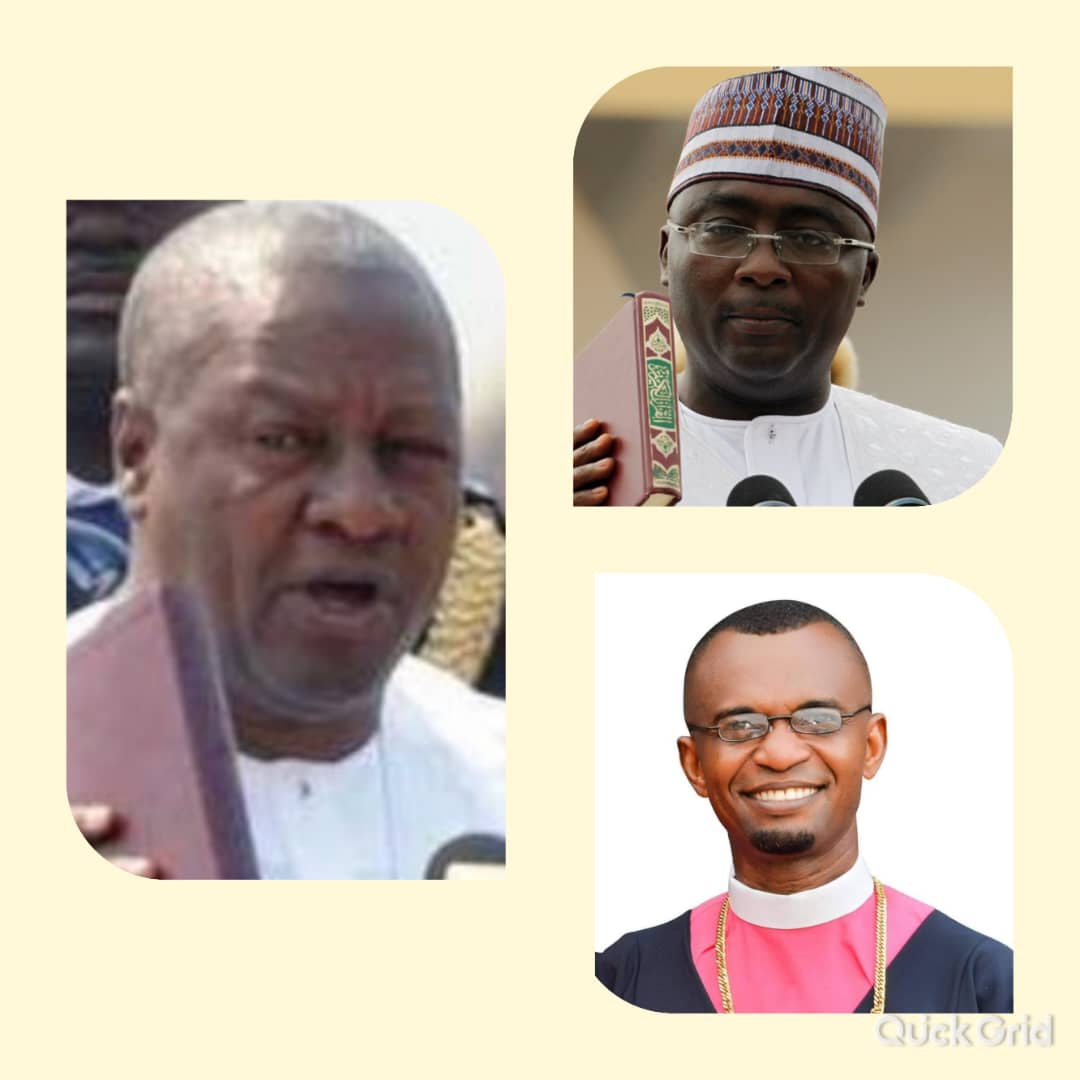Religio-Political Texture of Ghana's Upcoming Elections – Clergy Asserts

Should the Church Vote Christianly in Ghana's Upcoming Elections?
Clergy Urges Proactive Stance from Christian Community as Religious Tensions Rise
As Ghana gears up for the 2024 general elections, concerns about growing religio-political undertones are surfacing, with Christian clergy urging their congregants to be more proactive in safeguarding their religious heritage. Statements from various political figures have emphasized the significance of Muslim leadership, prompting Christian leaders to encourage their community to take a more deliberate approach to how they engage with the election.
Recently, Alhaji Dr. Mahamudu Bawumia, a key presidential candidate, made notable promises during his campaign, pledging to open more opportunities for Muslims and Zongo communities if he is elected. These commitments have garnered attention within the Muslim community, with leaders like Abdul Aziz Haruna Futa, NPP National NASARA Coordinator, and Salam Mustapha, NPP National Youth Organizer, urging Muslims to rally behind Dr. Bawumia, viewing the 2024 election as a chance for Muslims to take leadership in the country.
Christian leaders, however, have expressed concerns about what they perceive as a growing religious divide in Ghana's political landscape. They argue that while it is acceptable for Muslims to support one of their own, it has become controversial—and even viewed as intolerant—for Christians to rally around a Christian candidate. According to these leaders, this reflects a broader societal trend where the role of Christianity in Ghana’s development is being downplayed, despite its significant contributions to education, healthcare, morality, and national identity.
The clergy warns that the Ghanaian church is displaying a dangerous level of spiritual apathy toward this rising tide. Drawing parallels to biblical stories, such as that of Samson and the Philistines, they caution that the church risks losing its influence in much the same way ancient nations lost their heritage by failing to act decisively.
They also highlight the increased promotion of Muslim leadership by media, celebrities, academia, and certain political and religious figures. This narrative, they say, could have lasting implications for the Christian majority if the church does not act. They point to Nigeria as an example, where Christians are now facing violence, persecution, and the destruction of churches under Muslim leadership.
Christian leaders urge the church in Ghana to avoid repeating the mistakes made by Nigerian Christians, who were politically passive and later found themselves marginalized and persecuted. They emphasize that history shows Christians rarely thrive under Muslim-led regimes and warn that failing to vote based on Christian values could lead to a significant erosion of religious freedom, national identity, and Christian cultural heritage.
The clergy’s message to the Christian electorate is clear: to protect the Christian faith and its contributions to Ghanaian society, Christians must vote for candidates who will uphold and defend Christian values. They assert that the upcoming election is pivotal and that the church must not shy away from defending its interests at the ballot box.
“If the church fails to wake up,” they warn, “the Bible may be replaced by the Qur'an, churches may be turned into mosques, and Christian values could be gradually eroded.” They also highlight growing pressure on Christian leaders to remain silent on these issues, fearing public ridicule or backlash from political and intellectual elites.
Rev. Emmanuel Boachie, Country Director of Awesome Bible College and Head Pastor of Souls' Pasture Church in Kumasi, stressed the urgency of the situation. He reminded Christians that the early missionaries who brought the gospel to Ghana faced persecution and martyrdom, and that the church today must not betray their sacrifices by failing to defend the faith.
“The blood of the martyrs is still the seed sown in the fields of Ghana, bearing fruit of eternal life,” Rev. Boachie said. “Let those with ears hear what the Spirit says to the churches.”
As the 2024 election approaches, the religious dimension of political discourse is becoming more pronounced. The clergy is calling for a united and proactive Christian front, warning that the church’s response will have lasting implications not just for this election, but for the future of Christianity in Ghana. The question they pose to the church is simple: will they protect their legacy or risk losing it forever?
Contact: +233 (0) 240 37 59 59




Comments
Post a Comment